The story of Job is powerful, heartbreaking, convicting, and, to be honest, sometimes confusing. And the story of Job has it all: love, loss, happiness, tragedy, friendship, bad friends, giant animals, and twisters, angels, and God. In my opinion, however, the part of Job’s story that resonates with me the most is God’s monologue at the end of the book, in which we find these words in chapter 38:
1Then the LORD answered Job out of the whirlwind: 2“Who is this that darkens counsel by words without knowledge? 3Gird up your loins like a man, I will question you, and you shall declare to me. 4“Where were you when I laid the foundation of the earth? Tell me, if you have understanding. 5Who determined its measurements–surely you know! Or who stretched the line upon it? 6On what were its bases sunk, or who laid its cornerstone 7when the morning stars sang together and all the heavenly beings shouted for joy? 8“Or who shut in the sea with doors when it burst out from the womb?– 9when I made the clouds its garment, and thick darkness its swaddling band, 10and prescribed bounds for it, and set bars and doors, 11and said, ‘Thus far shall you come, and no farther, and here shall your proud waves be stopped’?”
At this point in the story, Job has all but given up on life and has begun to question God’s sovereignty, and God replies by questioning Job’s authority to question God. After all, where was Job when God put the stars in their places, or when God created the animals, or when God created people. So at this point, God’s first words to Job are, “Who is this that darkens counsel by words without knowledge?”. It is a valid question, and it deserves more attention than I have the space or time to give it; nevertheless, here are some thoughts.
Words and money have much in common. Both can build and topple empires. Both can bring enjoyment and pain. And both find their value in limitation and control. Money is a delicate system that can crumble the economy in excess. For example, during the American Civil War, one of the many struggles the South suffered from was a flooded economy. The South began to print money at a rate that could not be sustained or redeemed. Therefore, not long after it began printing its own currency, the currency became valueless. In other words, the South printed so great an excess of money that if all the printed currency were redeemed for its value in silver and Gold, almost no one would receive any silver or Gold; the excess of printed currency was a leading cause of creating a valueless currency.
In the same way, words are much like money: the more words are used and abused, the less value they have. We live in a culture today that treats words much like the South treated its own money. Social media bombards us with words and pictures. Blogs are innumerable, and their words are countless. Texting made sharing words faster, simpler, and more convenient (supposedly). Emails fill our inbox. Billboards flash at us on freeways. Words are everywhere, and, for the most part, are therefore becoming increasingly meaningless. We hide words in our newsfeed that we don’t want to read, and we ignore blogs that speak words we don’t like. We avoid texts, and we file emails into avoidable folders. We hear the words we want to hear and we avoid the others like a plague.
But wait, there’s more! Not only are words abounding and increasingly devalued, but words are often spoken without care of knowledge. I can prove it. Say you wake up with a headache tomorrow and your right foot is sore. So you naturally scroll over to WebMD and put in your symptoms only to find out you may suffer from 1 or more of 75 possible conditions, including but not limited to: sciatica, peripheral neuropathy, high blood pressure, diabetes, MS, sleep apnea, sunburn, carbon monoxide poisoning, kidney disease, lupus, lead poisoning, radiation sickness, or arthritis. Not a good day to be you. So you spend way too much time reading a plethora of words that you only understand some of, and eventually come to the conclusion that you might be dying. However, (and I cannot stress that transitionary word enough), if you were an actual doctor with the discernment necessary to evaluate your symptoms through lenses of experience, wisdom, training, and knowledge you might find out you actually just didn’t get enough sleep the night before because you worked an extra shift the day before at your job as a roller-skating car hop at Sonic. Not only did WebMD give you way too many words, most of those words were not backed with the knowledge needed to wield said words – just like Job when he fell privy to the temptation of questioning God.
Like Job, too often we use too many words to say something we don’t know enough about to be qualified to speak. We quickly judge political situations without knowing all the facts. We grumble words of disapproval under our breath at people in check-out lines in supermarkets without knowing their story. We yell at other drivers who cut us off on the freeways without knowing where or why they are rushing. We speak too many words with too little knowledge – like Job when he questioned God. Bottom line, then, we would do well to remember God’s warning question, “Who is this that darkens counsel by words without knowledge?”, and we would do well to remember to think before we speak.
